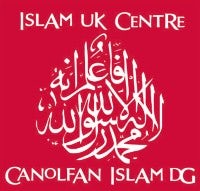Commission on Islam, Participation and Public Life
Mae'r cynnwys hwn ar gael yn Saesneg yn unig.
On 6 July 2015, Citizens-UK announced its plan to launch a national commission, chaired by Rt Hon Dominic Grieve PC QC MP, to consider how the Muslim community could better participate in the life of British society.
Professor Sophie Gilliat-Ray Director of the Islam UK Centre was asked to be a member of the commission.
The Commission will “tour the UK and hold hearings in a number of towns and cities, including those where Citizens UK works directly with civil society institutions, to hear their testimony as well as evidence from the Muslim communities, business, education and government bodies.”
On 11 October a hearing was held in the Glamorgan Council Chamber in Cardiff University where the Islam-UK Centre’s Dr Mansur Ali gave the opening testimony, a transcript of which can be read below:

Thank you very much, honourable guests, friends and colleagues, I would like to introduce the topic of Muslims in Wales by bringing in a personal touch. My family hail from the North-East region of Bangladesh called Sylhet as do 80 % of the Bangladeshis in the UK. During the late 1800s, the Welsh Calivinist Methodist Church (WCMC) initiated missionary activities in the region of Sylhet and Assam. Sylhet was of such importance to the WCMC’s mission that they referred to it as the ‘Welsh-Sylhet’ and even had a name for it in Welsh: Y Popty Poeth which means the burning furnace because of the regions extremely hot and wet weather. Today, in Cardiff, the Bangladeshi community residing on either side of the river Taff are served by two mosques. The Shah Jalal mosque on Crwys Road in Roath is the former Welsh Calvinistic Methodist Chapel designed by the architect John Phillips built in 1884. It has been functioning as a mosque since 1985. The former Clare Gardens Methodist chapel in Riverside, built in 1887 is now the spiritual and religious hub for the Bangladeshis of that area, and is known as the Jalalia mosque.
But there is another connection which joins Sylhet to Wales. You may notice that both mosques have the word Jalal in its name: Shah Jalal and Jalalia. In fact you will notice that many things related to Bengalis have this name in it: Shah Jalal supermarket, Shah Jalal travel agents. The first Indian restaurant in the UK in the Dockland’s area of London was called Shah Jolal Tandoori. So who is this Shah Jalal and what does he have to do with Wales? Similar to the Welsh missionaries, Shah Jalal was an itinerant missionary, charged by his sufi master with spreading Islam amongst the predominantly Hindu population of Sylhet. With his 360 followers, Shah Jalal reached Sylhet from the distant land of Yemen. Died in 1346 of the Common Era and buried in Sylhet, Shah Jalal is revered as the patron saint of Sylhet, the person Sylheti’s honour for bringing Islam to them. And here lies the Sylheti-Welsh connection: where Sylheti’s are indebted to the Yemeni’s for their Islam, the Yemeni community alongside the Somali community are the oldest Muslim communities in Wales.
Yemeni and Somali settlement in Cardiff and other port towns of the UK was a direct consequence of the industrial revolution. Steam vessels replaced sailing ships. Someone needed to do the job of a stoker in dry and dirty conditions. By 1881, a significant presence of Yemeni and Somali seafarers in Cardiff warranted the building of a boarding house called ‘home for coloured seamen’ in the Butetown area. Furthermore, the religious identity and significance of both these communities were enhanced by the arrival of a sufi Shaykh, Abdullah al-Hakimi in the 1930s. Al-Hakimi founded the Nurul Islam mosque on Peel Street in 1936 and was an important contact between the Muslim community and the local services.
According to the 2011 Census, there are 45,950 Muslims residing in Wales which is 1.5 % of the overall population of Wales. Out of this 51 % alone reside in Cardiff. Muslims make up the second largest religious group in Wales after Christians; and Pakistanis and Bangladeshis are by far the largest ethnic group. In accordance to the general UK statistics on Muslims, the Muslim population in Wales is a relatively young one. Average household size is higher in the Muslim community than in the overall population. Compared to the population as a whole, Muslims are more likely to live in the 10 per cent most deprived areas of Wales and less likely to live in the 50 per cent least deprived areas. Unfortunately, this bleak and sorry fate has led to some vulnerable Muslims being enticed and exploited by the Muslim far-right.
Where once Muslim civic engagement was done through the leadership of Shaykh Abdullah al-Hakimi, today engagement with civic authorities relies on the economic support and commitments of the Muslim middle-class, like the Muslim Council of Wales and informed by the cutting-edge research conducted by my team at the Centre for the Study of Islam in the UK, of which Professor Sophie Gilliat-Ray is its director.
Finally, it is fortunate that one of the most theologically ecumenical and ethnically diverse mosques in the UK is the Darul Isra Mosque on Salisbury Road in Cardiff. The name of the mosque, Darul Isra meaning the land of the Night Journey referring to the Prophet Muhammad’s mystical journey to Jerusalem, reminds me of the words of the visionary poet William Blake and imbues me with the hope that we can all work together,
And did the Countenance Divine
Shine forth upon our clouded hills?
And was Jerusalem builded here
Among these dark Satanic mills?
I will not cease from mental fight,
Nor shall my sword sleep in my hand
Till we have built Jerusalem
In England’s green and pleasant land.
Thank you very much.
